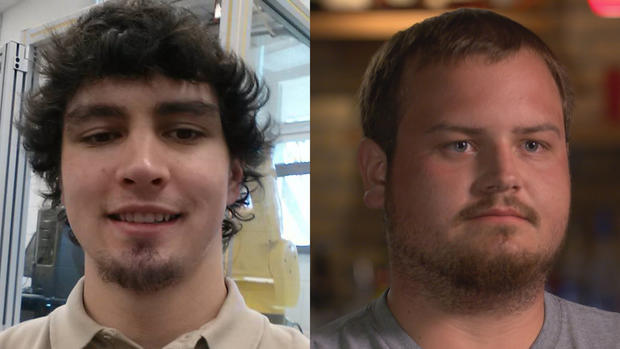Two college drug busts, two different fates
In 2013, Andrew Sadek, a college student in North Dakota, was caught selling a relatively small amount of marijuana - two sales for a total of $80. Rather than charge him, however, the police offered him a choice: work as a confidential informant, wearing a wire and making six drug buys, or face a maximum prison term of 40 years. Like many kids in his position, Sadek opted to help the police. Less than a year later, he was found dead in a river, with a gunshot wound to the head. While it's unclear how he died, his parents believe he was murdered as a result of his work as a confidential informant.
On 60 Minutes this week, Lesley Stahl talks to Sadek's parents and others about the recruitment of young, low-level offenders like Sadek to work for the police as confidential informants. Critics say these young people may be naïve to the dangers of working undercover and are often instructed not to tell anyone about what they've agreed to do -- not even their parents.
In the video above, Stahl tells Overtime editor Ann Silvio that Sadek's parents, Tammy and John, had no idea he was working as a confidential informant, and that they never would have allowed it. "We'd have gotten him a lawyer and told him 'no,'" Tammy tells Stahl in the story. Her husband John agrees. "We've never heard of such a thing, you know, using college students for snitches or whatever you want to call them," he says.
Stahl says the Sadeks spoke to 60 Minutes to call attention to what they see as a dangerous practice by the police. "They are ringing the alarm bell," Stahl says. "They want parents to know so they can tell their kids ahead of time, 'You get in any kind of trouble, call us. Call us.'"
Even with the threat of prison time, not every student takes the deal. Jason Weber, chief of a four-county drug task force, who recruited Andrew Sadek, also tried to recruit Matt Sander, who had attended the same college.
Caught selling marijuana, Sander says Weber told him he was facing up to 30 years in prison if he didn't cooperate. "He kept repeating, 'This is the only time you can save yourself,'" Sander recalls. And when Sander said he wanted to speak with a lawyer, he says Weber told him, "A lawyer cannot help you right now."
Weber says he does not remember the specific conversation, but denies that he would have said something like that. "I would never deter anybody from contacting an attorney," he told 60 Minutes.
Unlike Andrew Sadek, Sander did not agree to work as a confidential informant. Instead, he says, he simply stood up and walked out. He eventually told his mother what had happened and, working with a lawyer, he was sentenced to two years of probation and roughly $800 in court fines. It was a far cry from the prison time he says Weber threatened him with -- and a far cry from Sadek's fate.
"This makes it an even greater tragedy," Stahl says. "Because the chances are that if Andrew Sadek had gone to his parents, he, too, would've gotten a slap on the wrist, some probation time and he could go on with his life."
This video was produced by Will Croxton and Ann Silvio, and edited by Will Croxton.
